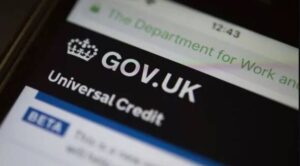
Luckily for Reeves, she’s just found a way of generating a £50billion windfall at a stroke. That’s more than enough to plug her £22billion “black hole” with a bit to spare.
Not so lucky for us, though. If she gets this wrong it could trigger another “Liz Truss moment,” which would be a total disaster for the UK.
The Reeves masterplan sounds a bit, um, dodgy. So dodgy, in fact, that she ruled it out before the general election. Now she’s ruling it back in.
So has she finally found the fabled magic money tree, that the Tories claim Labour believes in?
In a way, yes.
Reeves is going to rewrite the UK’s fiscal rules to magic up £50billion, apparently out of nowhere.
There’s a catch, though. Once it appears, the money will still count as borrowing which means it will increase the national debt, which already stands at a staggering £2.5trillion. That’s the same size as the entire UK economy.
It will have other nasty consequences, too. Especially for homeowners.
Reeves has been accused of “fiddling the books”. She has to tread carefully or the UK’s number will be up.
Briefly, here’s the technical bit.
Before the election, Labour’s manifesto pledged to stick with two fiscal rules followed by former Tory chancellor Jeremy Hunt.
The first was that day-to-day government spending would be funded from taxes, rather than borrowing. I think she’s sticking to that one. At least for now.
The second rule was that debt must be falling as a share of the economy within five years.
That’s the one Reeves wants to change.
She has several options, which mostly involve sticking things in different columns.
So, she may claim the nation’s debt is actually smaller than it really is because the government is owed £236billion in unpaid student loans. She’ll then deduct that figure from the total and – hey presto!
Or she may stick a value on all the things the government owns, such as roads and parks, and use that to magically shrink the debt.
That £2.5trillion will still be there, plus another £50billion on top, but it’ll all add up if you don’t look too closely.
Entrepreneur John Longworth is scathing, saying the fiscal rules rejig is “not a windfall, it’s fiddling the books, rearranging the deckchairs”.
He’s not the only one outraged.
Jeremy Hunt reminds us that Reeves “explicitly ruled out” changing the rules last year.
Treasury analysis prepared for Hunt last year suggests more borrowing could add 1.25 percentage points to interest rates, as we reported yesterday.
That would be a disaster for mortgage borrowers, who would see their monthly payments rise just when they thought they were about to start falling.
Independent economist Julian Jessop is sceptical. “The rejig may allow more borrowing without breaking the fiscal rules, but it would still be more borrowing and add to debt which is already 100% of GDP.”
Jessop said “there are clearly risks to credibility” and by that he means credibility with the bond markets, which the UK relies on to borrow the money we need to stay afloat.
The bond markets sunk Truss because they thought she was playing fast and loose within nation’s finances. So they demanded a premium for lending money to us, which ended with Truss being compared to a wet lettuce.
If the bond markets decide Reeves is a wet lettuce, too, her fiscal fiddling could end badly for Labour. Most importantly, it could be a disaster for the UK economy. When did “fiddling the books” ever end well?
















